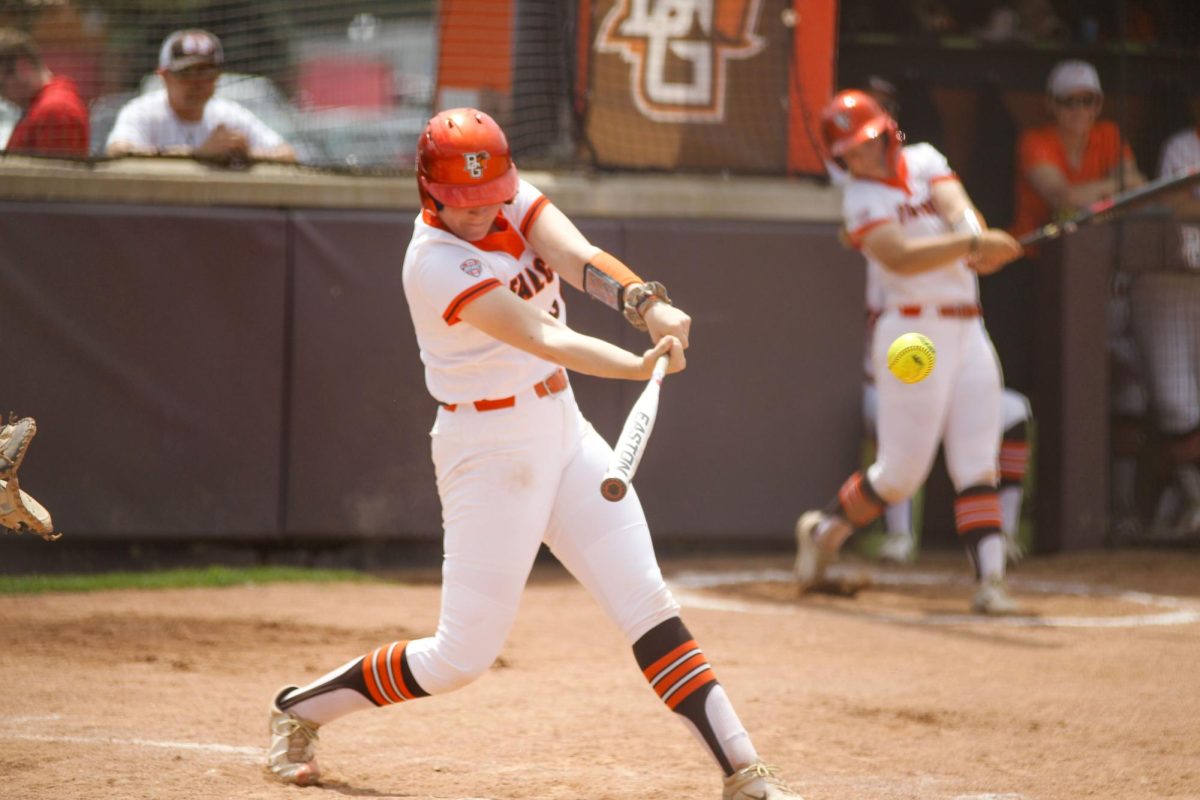The days of plundering pirates are far from over.
Today’s pirates may not sail the high seas, but they do surf the Internet, illegally downloading and distributing copyrighted products along the way.
Though these pirates may not be the dangerous, cutlass-carrying kind of legends, they are costing the film industry billions of dollars every year, according to the Motion Picture Association of America.
The MPAA said college students are contributing to this problem because they often have high-speed access to file sharing networks, making it easy to illegally swap movie files.
It’s so easy for students to find copyrighted movie files online, said professor Charles Coletta, who teaches popular film.
“It’s only going to become easier and easier,” he added.
Although students have easy access to copyrighted movies, obtaining them isn’t as convenient as it may seem.
Downloading movies through a peer-to-peer network, such as Morpheus, can take hours due to the large sizes of the files, and the sound and picture quality often suffer.
Additionally, students risk opening up their computers to potentially dangerous viruses and software.
Because of these complications, Nick Army, a film production major, said movie piracy via P2P networks isn’t currently a major threat to the industry.
“I think that if downloading movies became as fast and refined as downloading an mp3 is, then it will be a threat,” Army said.
Some still find illegally downloading movies alluring, as P2P programs often allow users access to movies that are still in theaters or haven’t yet been released to the public.
Not to mention, the movies are free.
“The kids don’t feel guilty at all,” Coletta said. The movie industry has “ripped people off for years.”
Sarah Hummel, a sophomore film student, said movie piracy is unfair to those who work in the industry, but she understands why people do it.
“It goes back to the high cost,” Hummel said.
Students often cite the high prices of DVDs and movie tickets as reasons why many college kids engage in movie piracy.
A newly-released DVD movie usually costs between $15 and $20, while ticket prices in northwest Ohio are as high as $9.50.
“When I’m at school, I rarely go to the movies,” said Blake Mikol, 21, a visual communication and technology education major.
“Most people still love going to the theater though,” he added. “Piracy has been going on for sometime, but movies are still making millions of dollars.”
Indeed movies continue to make millions of dollars each at the box office, but the MPAA said the industry as a whole is losing billions because of piracy.
They estimate the U.S. motion picture industry loses nearly $3.5 billion each year due to various forms of movie piracy, especially through P2P programs.
During a film convention this year, president and CEO of the MPAA, Dan Glickman, said digital theft “threatens the economic future” of the film industry.
“The illegal trafficking of movies on the Internet, usually on peer-to-peer networks, is our greatest challenge and we are working hard to address it head on,” Glickman said.
The future of P2P networks is currently unclear.
In June, the Supreme Court ruled in MGM Studios Inc. v. Grokster Ltd. that P2P file sharing companies, Grokster and StreamCast (maker of Morpheus), could be held liable for inducing copyright infringement.
“The business models employed by Grokster and StreamCast confirm that their principal object was use of their software to download copyrighted works,” Justice Souter said in the court’s opinion.
The unanimous decision means that companies, like Grokster, that produce file sharing software, can now be sued for encouraging and assisting in copyright theft.
Unfortunately for college students, file sharing software companies aren’t the only ones who can get in trouble.
End users, or those who use file sharing programs to access illegal downloads, are also at great risk.
Though the MPAA won’t reveal their tactics, they have ways of discovering who distributes and downloads copyrighted movies.
In fact, they have followed in the footsteps of the Recording Industry Association of America by filing copyright infringement lawsuits against a number of college students who have illegally downloaded films.
The MPAA is trying to send the message that “you can click but you can’t hide,” a slogan used as part of their anti-piracy campaign.
This is just part of their multi-pronged approach to combating Internet movie piracy.
They are also trying to deter students by making them aware of the potential consequences of illegally downloading files.
Penalties for individuals who illegally download copyrighted material include civil fines of up to $30,000 per copy and possible criminal fines of up to $250,000 and five years in prison.
And according to the MPAA, that is just for first-time offenders.
Earlier this year, a student at the University of Arizona was convicted of illegally downloading music and movies from the Internet. He was sentenced to a three-month deferred jail term, three years probation, 200 hours of community service and a $5,400 fine.
The punishment would have been even more severe, but the student was only a minor when he commited the crimes.
In addition to possible legal penalties, students who use P2P programs are opening themselves up to a variety of potential computer problems, including viruses, worms, Trojan horses and persistent pop-up ads.
P2P software can also contain spyware programs, giving complete strangers access to personal information stored on computers. This makes students extremely vunerable to identity theft.
Though the MPAA is largely concerned with the file sharing of copyrighted movies, they are also aware of how easy it is for students to make hard copies of movies.
Army, a junior, said DVD bootlegging may be a bigger problem on campuses than P2P movie downloads.
Today it costs less than $200 to purchase, install and download the devices and programs that allow students to copy DVDs.
Rather than buying a movie, students can rent or borrow it from a friend, burn it and then return the original copy, thus saving a considerable amount of money.
Nonetheless, students who partake in this form of piracy can still be punished for infringing on copyright laws, which are meant to protect the people responsible for making movies.
“Piracy is robbing creative minds everyday of the opportunity to make a living based on their ideas,” Glickman said. “The movie industry is working everyday to find ways to give customers new and exciting choices about how they watch movies, while at the same time protecting the rights of the people who work so hard to create them.”
The MPAA wants students to be aware of the dangers of illegally downloading movies so they can avoid the consequences.
Students must be aware that engaging in piracy is like jumping into shark-infested waters; it may only be a matter of time before you are bitten.

















